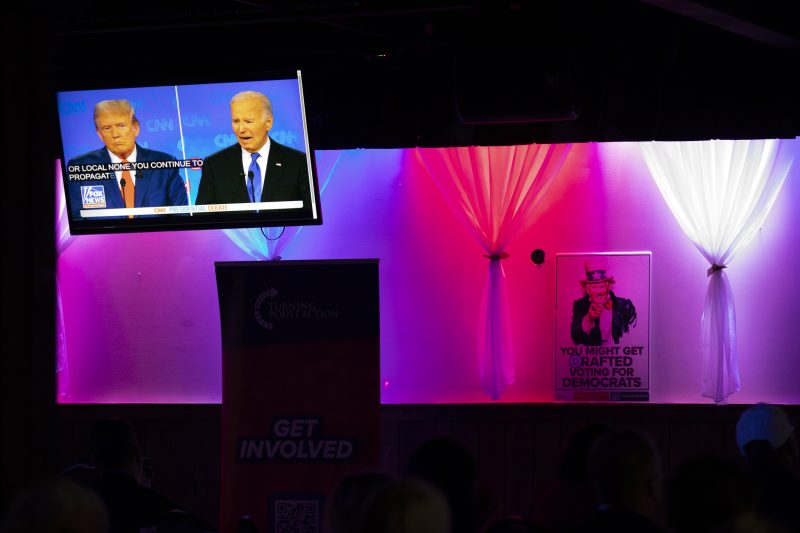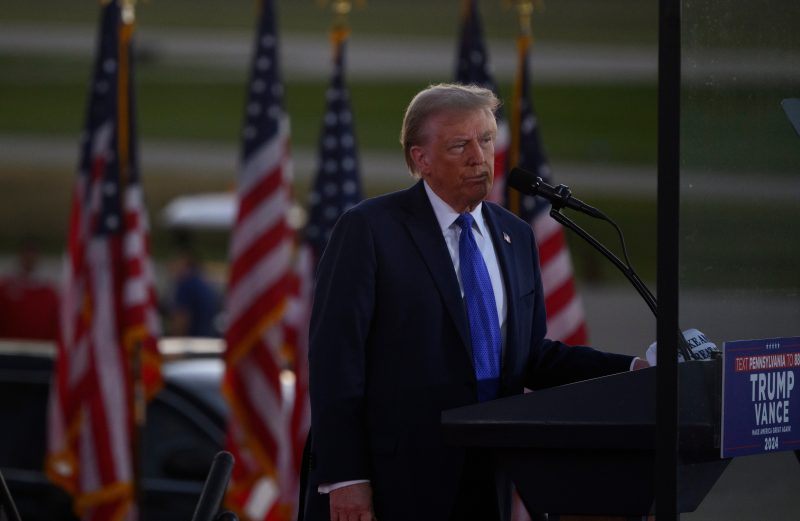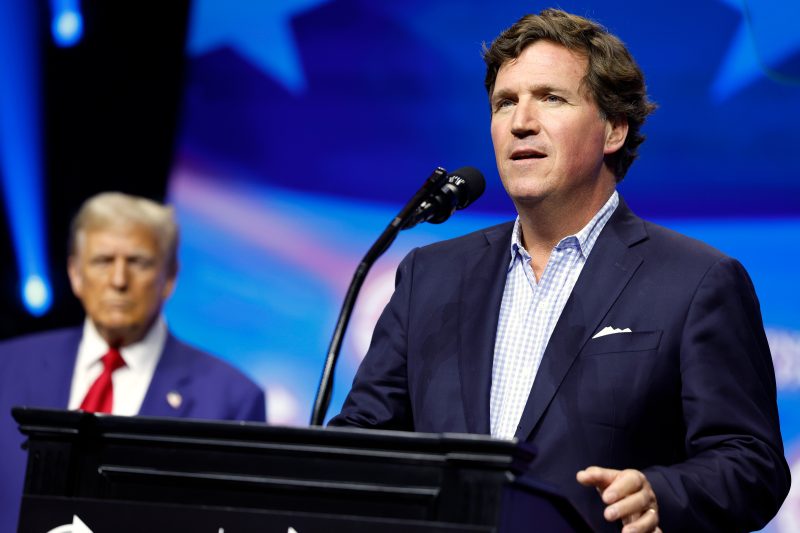The debate elevates 2024’s central question: Who’s paying attention?

On Tuesday night, Vice President Kamala Harris and former president Donald Trump will meet for what might be their only debate of the 2024 presidential election. It is an opportunity, you’ve probably heard, for Harris to help Americans understand who she is and what she stands for. In polling conducted by Siena College for the New York Times, 3 in 10 respondents said they needed to know more about Harris. On Tuesday, she can tell them.
If they’re watching.
That you are reading this article differentiates you from many Americans. You are a member of the subpopulation of people in this country who pay close attention to politics, to the extent that you are currently looking at an analysis about the centrality of that attention-paying to the outcome of this year’s presidential election. Your membership in this group is appreciated, obviously.
But most Americans aren’t reading this article. And most Americans will not watch Tuesday’s debate. While the number of people who have been tuning in to presidential debates has increased since a nadir during the blowout election year of 1996, there are also a lot more people living in America than there were then. (About 67 million more, to be specific.) So the 51.3 million people who watched President Joe Biden and Trump debate in late June was a relatively smaller part of the population than the 51.2 million who watched the third debate in 2004.
Viewership of the (unusually early) June debate was near the 1996-2000 low, adjusted for population.
This is the percentage of the total population, which is what Nielsen measures, rather than excluding kids who probably wouldn’t be inclined to watch — but as the population has gotten larger, it has also skewed more heavily older.
It’s also probably the case that viewership trended upward since 1996 in part because of increased partisan identification. The University of Wisconsin’s Barry Burden made this point before that Biden-Trump debate and it tracks: Higher investment in partisan success would suggest more interest in seeing how well each candidate does.
Interest in June might have been lower in part because the characters were familiar: Trump and Biden debated twice when they ran against each other in 2020. Harris is less well-known than Trump — as is just about everyone in America — which might encourage higher ratings on Tuesday.
Whether that means people who aren’t paying much attention to the election will tune in is another question entirely.
YouGov recently conducted polling for the Economist in which they asked Americans how much attention they had given the presidential contest. Less than half of respondents said they’d been paying a lot of attention. About three-quarters said they’d been paying at least some attention.
Attention was lower among a number of groups that would seem to be natural bases of support for Harris: women, younger voters and Black and Hispanic voters. In the Times-Siena College poll, these were also groups that were more likely to say they wanted to know more about Harris — and, at least in the latter categories, groups for which likely voters were more supportive of Harris than registered voters overall.
As we’ve noted before, there is an often underrecognized overlap between America’s younger, non-White and politically independent populations. Independents generally don’t pay as much attention to politics; that so many young people are independents is important to bear in mind here.
Will those people who aren’t paying attention watch the debate? Many won’t. But, then, research shows that the 2016 debates did less to shape views of candidates than the commentary that followed. It’s likely that a lot of people casually attached to the political process will encounter the debate through clips on social media. And many will not pay much attention until much closer to Election Day. In 2016, independents coalesced around Trump only in the last days of the election.
This is the other way in which attention and interest are informing our understanding of the presidential contest: It’s not clear who will turn out to vote. Trump has a steady base of support that in 2016 and 2020 sat a bit under 50 percent of voters. Running against Biden in 2024 before the president left the race, Trump started to see majority support in some polls. Against Harris, though, that has waned.
There are also signs that Harris could benefit from an energy that Biden lacked. Biden ran close to Trump in large part because voters wanted to express opposition to Trump; his support with younger and non-White voters this year lagged his own support in 2020. Now Black voters, a new Washington Post-Ipsos poll finds, are more energized to vote in November. Harris also is better positioned on abortion, a central issue in recent elections. When ballot measures or candidates have focused on increasing access to abortion, they have generally fared well, although it’s hard to know whether that pattern will translate to a higher-turnout presidential contest.
Debate viewership is driven by highly engaged people tuning in. So are elections, but they’re often decided by people who aren’t highly engaged, the sorts of people who somehow didn’t make it 800 words into an article about the dynamics of the election. They are also people who are definitionally harder to contact and inform — one reason that polling in recent years has at times been off the mark, including in underestimating the effects of the abortion-access question.
If debate viewership surges dramatically, it might indicate a surge in support that tells us something about the election outcome — but probably only in retrospect. Dissatisfying as it is, the best measure of how much attention people are paying will come on Election Day.




